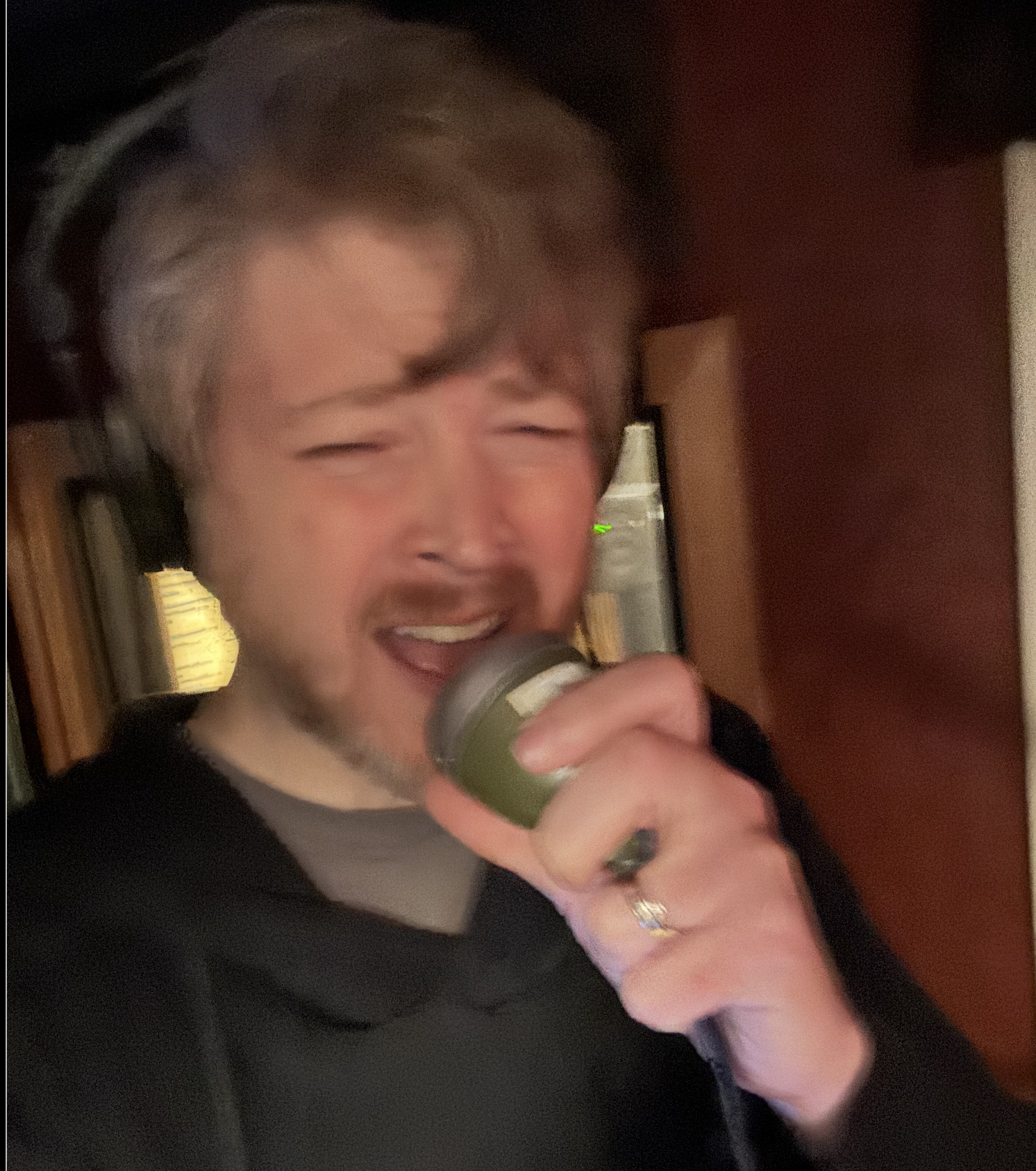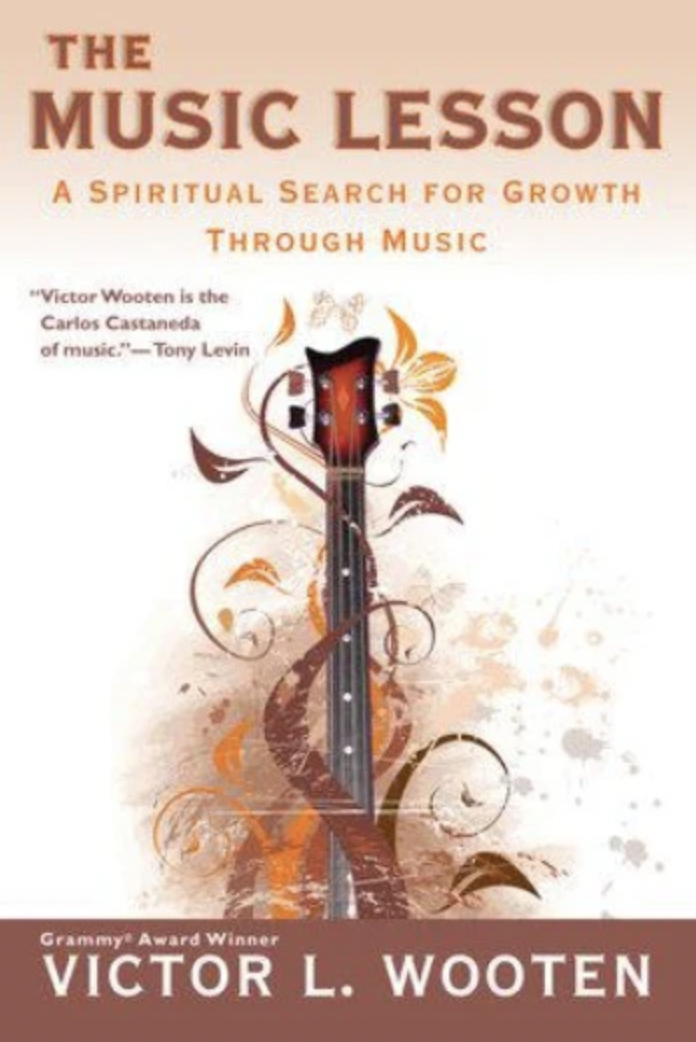How to Raise Musical Children (Without the Burnout)
When my kids were little, the house was never quiet.
They banged on my drums. They sang in the car. They danced in the kitchen—sometimes spinning on their diapers to the Ramones’ I Wanna Be Sedated. At night, I’d sing them to sleep: Lennon’s Beautiful Boy, Marley’s Three Little Birds, or Sinatra’s version of “Fly Me to the Moon”. If I ran out of material, I would simply make up a silly song on the spot. They quickly developed favorites and would insist on them like they were part of the bedtime contract.
In my interview with Steve Nalepa, we talked about his daughter’s new album project about their very special family dog. The way he describes it—pure curiosity, no agenda—reminded me of something I’ve learned as both a musician and a parent: if you want music to be a lifelong source of joy, you can’t smother it with pressure. You have to make room for discovery.
“Let them find their way, and if you’re doing your thing with love, they’ll eventually model it in their own way.” — Steve Nalepa
Why Music?
Learning music is one of the greatest experiences we can have. You don’t just learn songs—you learn how you learn best. If you stick with it for a few months, you get to see gradual progress and experience bigger breakthroughs. It’s pretty empowering!
And almost everyone can play an instrument. Proof? Go to a concert and watch people clap in time. That’s drumming. That’s rhythm. That’s music.
When you were learning to walk, you didn’t give up after falling the first dozen times. You had motivation, you could see it was possible, and you had support—tables to hold, hands to steady you. Music works the same way.
Young musicians need three things:
Motivation — the inner spark to make music.
Inspiration — seeing and hearing what’s possible.
Access — an instrument to make sound and explore (and if needed, a place to play).
A great teacher can help with the first two, but I’ve met many self-taught musicians who found their own way simply because the desire burned bright enough. Families have to help provide the access.
The Joy Principle
Steve and I agree: It has to be fun or rewarding.
If it’s all drills and no delight, kids won’t put in the hours it takes to develop muscle memory. Early on, my sons got to pick the pieces they wanted to learn. Sometimes that meant Mario Kart themes instead of scales. And that’s fine—because when something matters to them, they’ll stick with it.
I’ve learned to laugh at my own mistakes. Hit a clunker of a note? That’s part of the game. My favorite half-true legend is that Thelonious Monk stopped writing music because “there were no more wrong notes to play.” What he actually said was, “There is no wrong note, it has to do with how you resolve it.” That’s a life lesson as much as a music one.
That’s why I loved Steve’s story about making music with his daughter. She wrote a fun song called “Squirrel!!!!!! Squirrel!!!!!!” about their dog, which evolved into a whole album!
Here’s the result Meta Nalepa’s song “Squirrel!!!!!! Squirrel!!!!!!”
Can’t you just hear the joy?
When recording the music together, she sang it with such joy that she didn’t want to stop.
“She didn’t even know we were done, so she just kept singing it 20 times with all her heart—I had to stop the session or she never would have stopped.”
That’s the kind of joy I hope every kid can feel when they make something. And it’s the kind of moment we can support as parents—without over-directing it.
Music Teaches Us How to Learn
Music isn’t just about scales or gear—it’s about process.
It teaches patience. Frustration tolerance. Pattern recognition. Confidence.
It teaches us that learning anything takes time and trust.
I meet people all the time who say, “I wish I could play an instrument.” I always tell them they probably can. Silly proof: go to any concert and you’ll see hundreds of people clapping in rhythm. That’s a drum. That’s musicality. That’s timing. It’s already in your body.
But learning an instrument takes more than desire. Like when you learned to walk, learning music takes:
Motivation (you've got to want to do it!)
Observation (you see it’s possible)
Support (you get help along the way)
The same is true for our kids—whether they’re blowing into a trumpet, strumming a guitar, or banging on pots and pans. Our role is to nurture the drive and create space for exploration.
Letting Kids Lead the Way
When Steve’s daughter recorded a song on her album, she kept on singing the hook over twenty times without realizing that she could just stop and that her Dad had recorded plenty of “takes”. She’s just all caught up in the music with her heart leading the way.
“If she wants to get into music, there’s a lot of equipment here... but I didn’t want to push it on her. I wanted her to come to it on her own.” - Steve Nalepa
My own sons’ paths were unpredictable:
Our youngest teenager learned to play trumpet in middle school, then learning to perform video game music, before discovering punk and wanting to front a band from behind the drums. When I asked one of them why he stuck with music, he said, “Because creativity’s always been encouraged in our house.”
That’s it. Model creativity, keep the invitation open, and they’ll find their way.
Our older teen quit his piano lessons to take up the guitar and then switched to bass. He now writes his own songs, plays a bit of everything, and has a wide palette of music from jazz to classical and hard rock.
I’m pretty sure I’m not singing in tune here, but I bet I’m “feeling it!”
Frustration Is Part of the Process
Playing an instrument is awkward at first. Singing in tune, for example, means your vocal cords are vibrating close to 440 times per second. Get a few cycles off and the note will sound wrong—even to non-musicians. That precision takes practice. Some days will feel clumsy. That’s okay. Frustration is proof you’re stretching.
How to Support Without Pushing
Model creative work yourself—let them see you making music for the love of it.
Light structure helps: touch the instrument every day, even if it’s just for a few minutes.
Use games—make up melodies, swap lyrics, invent rhythms.
Mix in technology—YouTube, music apps, or learning to record can all be great on-ramps.
Take them to see live music up close. Neuroscience tells us that when we watch someone perform, parts of our brain fire as if we’re doing it ourselves. That mirror effect is powerful—it’s like practicing just by witnessing. So taking your kids to watch live music is one of the most powerful things you can do!
Practical Tips (and a Few Favorites)
🎧 The Music Lesson by Victor Wooten – I recommend the audiobook version. It’s soulful, quirky, and packed with wisdom about music and life.
🕹 Let tech help: simple recording apps, loopers, or effects pedals can spark curiosity.
🎤 Let them watch (or join) performances.
📀 Go to a record store and let them wander. Let them explore the weird and wonderful and ask them why they like what they pick up.
Final Thoughts
Raising musical kids isn’t about building prodigies or professional artists. It’s about building connection—to joy, to creativity, and to themselves. Make music part of your family’s culture, and they’ll carry that gift forever.
Your turn: What’s your child’s favorite creative outlet—and how did they discover it?
Do you have any tips for raising musical and artistic children?

